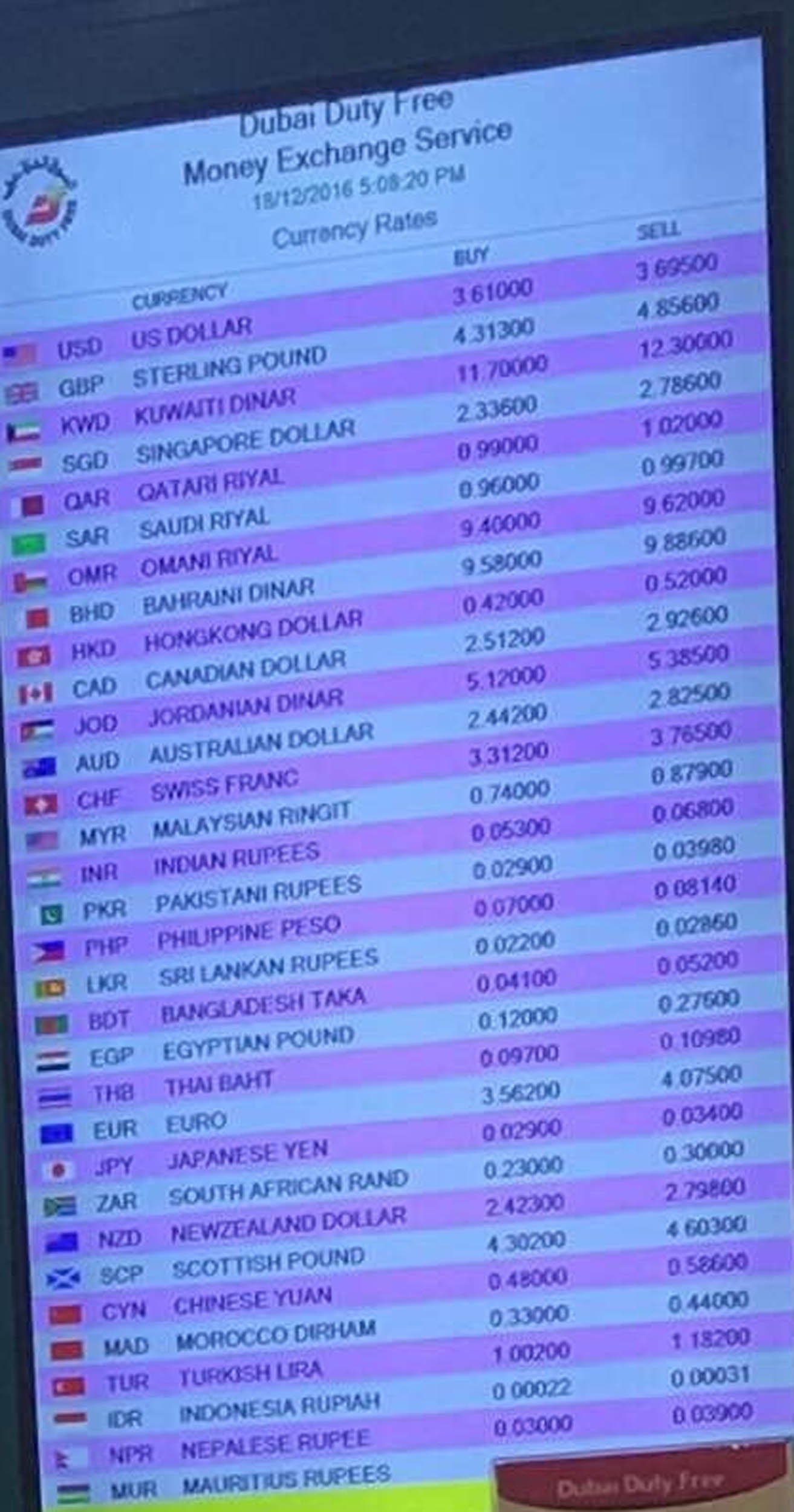A DUBAI bank has admitted setting different exchange rates for English and Scottish bank notes because the latter has “no buyers”.
Scots tourists were shocked to see the differing rates on a currency exchange board at duty free in Dubai Airport last month.
Now a spokesman for the emirate’s airport has revealed that the Dubai bank who set their rates value the “Scottish pound” at less than the actual currency, pounds sterling.
The bank, Emirates NBD, is one of the biggest banks in the United Arab Emirates (UAE), having around 9,000 employees and assets of £81bn.
A spokesman for Dubai Duty Free said: “Our Exchange Bureau rates are based on the rates quoted by our bankers, ENBD, on a daily basis.
“In the recent past, ENBD has drastically reduced the rate of Scottish pounds which builds up an uncomfortable variance of rates between the sterling pound and Scottish pound which also resulted in incurring exchange loss.
“Due to this fact, we are constrained to reduce the rate of the Scottish pound.”
The currency exchange service was offering to buy the pound for 4.31300 United Arab Emirates dirham and the “Scottish pound” for just 4.30200 dirham.
The board also stated that the exchange service sold the “Scottish pound” for 4.60300 dirham and the sterling for 4.85600.
This means that a tourist who exchanging £1000 worth of English notes would receive 4310 dirham, whereas one exchanging £1000 of Scottish notes, would get just 4302.
A spokesman for Emirates NBD said: “Sterling pound cash is a more tradeable currency in the Dubai market, and it always has buyers and sellers.
“Scottish pound cash in the Dubai market has no buyers, hence our whole-sale introduced an extra margin to ship the Scottish pound to Dubai.”
The British Bankers’ Association said the rates should not have been listed differently.
A spokesman said: “The ‘Scottish pound’ is the sterling pound so they should not be listed differently nor should they have different exchange rates.”

Gordon MacIntyre-Kemp, CEO of Business for Scotland agreed with the association.
He said: “Obviously everyone knows that Scotland shares a currency with the rest of the UK and so there is no variance in value between the sterling and Scottish pounds.”
But Mr MacIntyre-Kemp also explained that the lower rate for the Scottish pound could increase exports from Scotland to the UAE.
He added: “A good currency rate is one that matches your nation’s exporting and manufacturing policy.
“For example, if a Scottish pound were worth less than sterling then it would be easier for Scottish food and drink manufacturers to export, so Dubai would be able to afford to import even more whisky from Scotland than they currently can.”
The Scottish Government and Scottish National Party declined to comment on the matter.
The issue with Scottish and English banknotes has recently caused controversy back in the UK.
Last month, a McDonald’s customer went viral after filming himself arguing with a member of staff who refused to accept a Scottish five pound note.
McDonald’s later claimed the note had failed to pass through a machine which checks genuine bank notes.
But the Scot said staff had never suggested the note was counterfeit.

